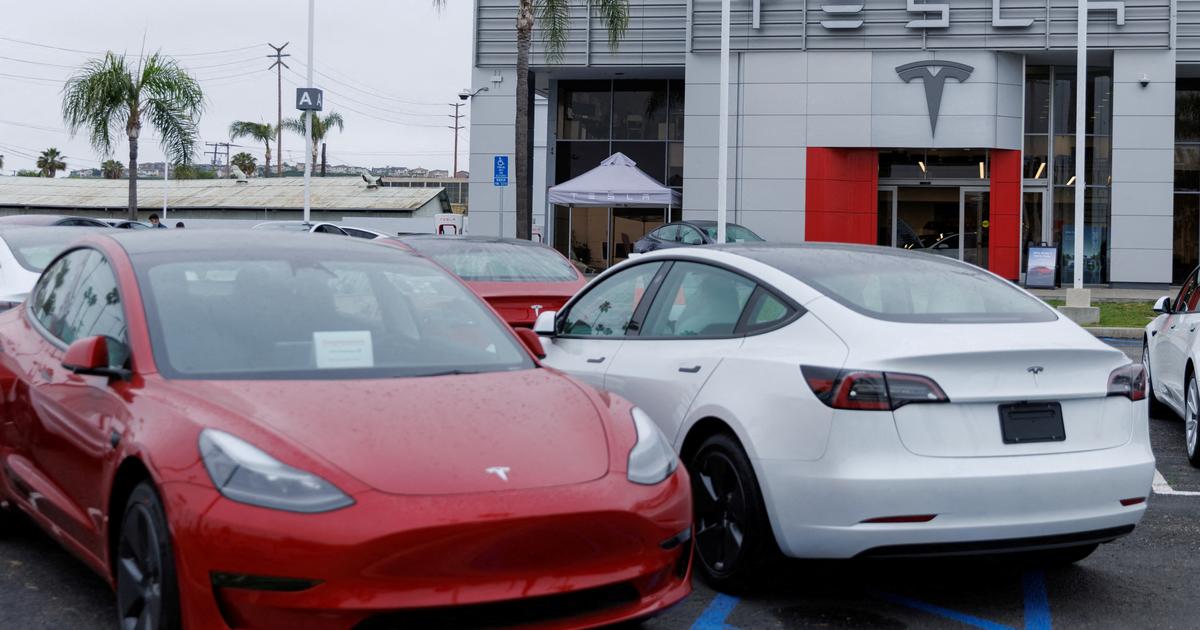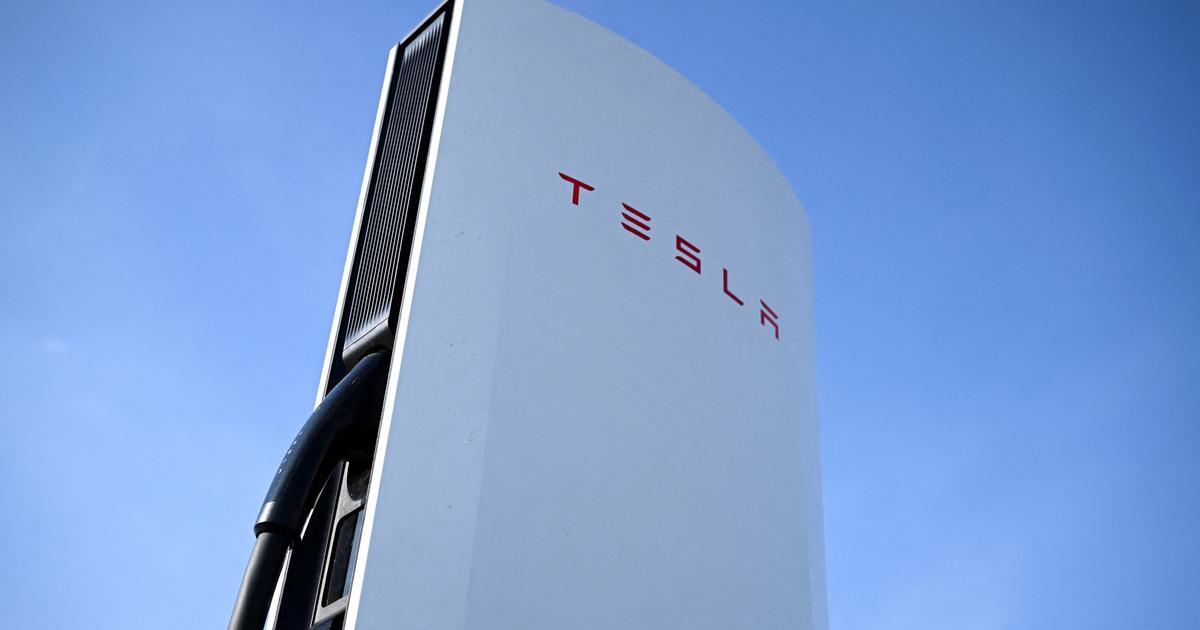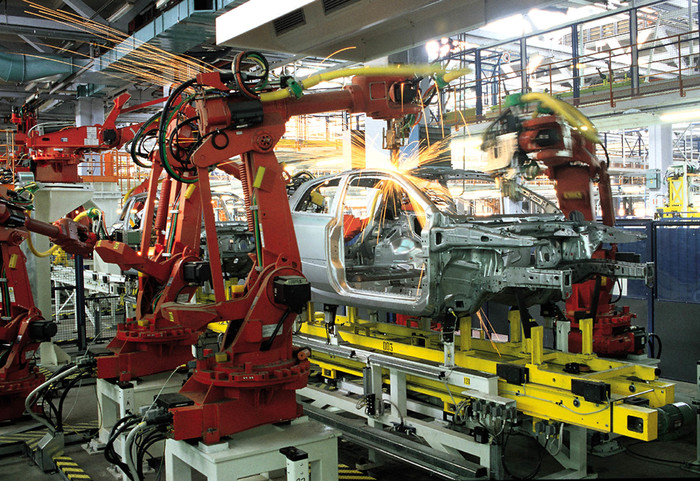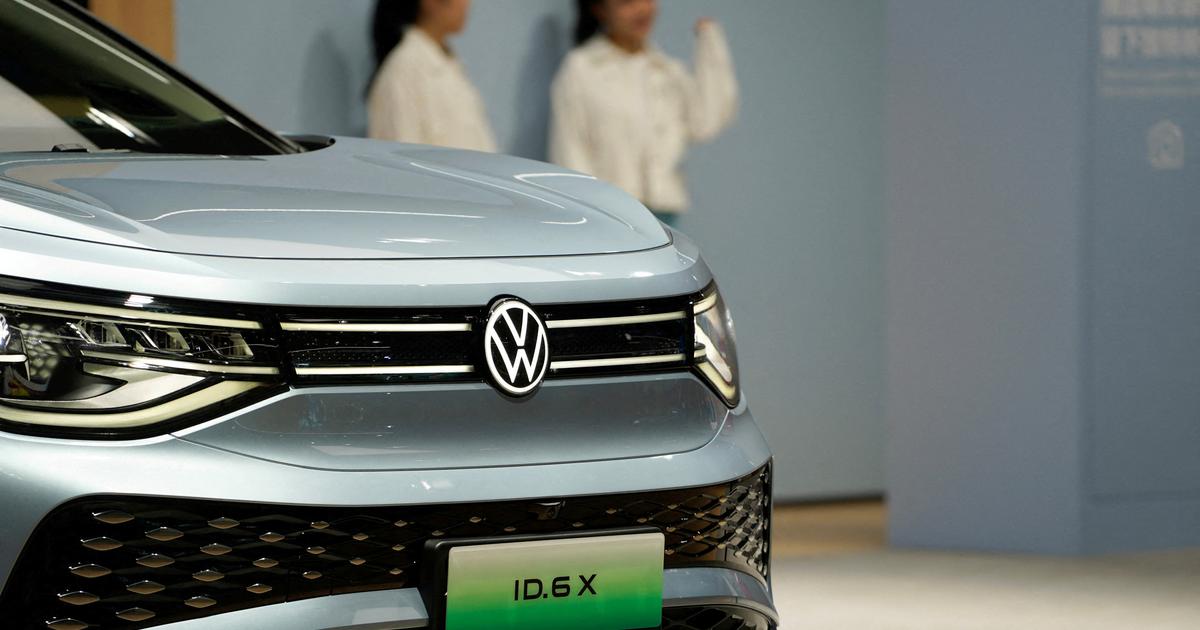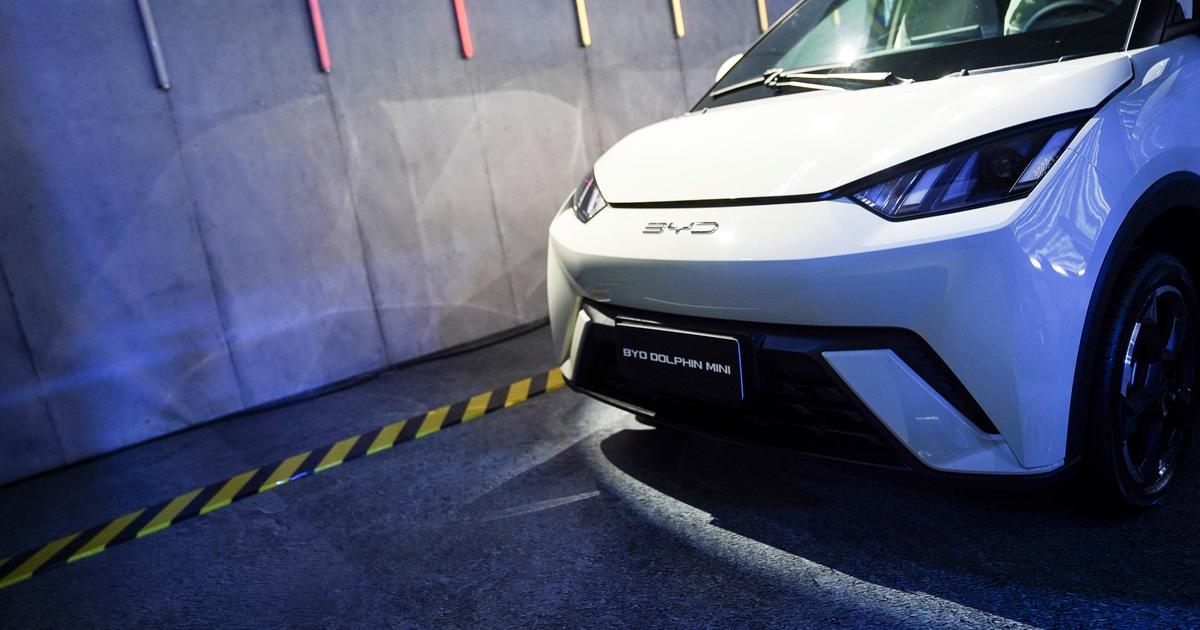In the middle of Beijing, in the trendy Sanlitun district, there is an elegant white sports car in front of a car dealership. "K50" is the name of the Chinese brand Qiantu: a fully electric sports coupé, 580 Nm torque, a good 300 km range. Externally, it resembles the Bugatti Veyron super sports car. But it is much quieter and cheaper.
"We sold three K50s here in the last half of the year," says car dealer Peter Gao when he invites them for a short test drive: "685,000 yuan a piece" - the equivalent of just under 90,000 euros. The cost of operating the dealership alone amounts to the equivalent of 6500 euros per day. Peter Gao doesn't look very confident.
This is what many are currently doing in China's e-car industry. For years, the central, provincial and city governments have generously supported manufacturers and buyers of electric cars, with favorable investment conditions, subsidies of up to 8,000 euros per vehicle and benefits in road traffic.
MULLEN
Qiantu K50: Almost like a Bugatti - only electric. And chinese
Is the e-car boom over?
While owners of cars with combustion engines in many metropolises in the country could only get approval through lotteries or other expensive processes, the Stromer often got their license plates immediately. In addition, they could park for free in many places and use special lanes in the traffic thicket. Result: In 2018, 1.26 million electric cars were sold in the People's Republic, more than half of the world's production.
But since the middle of this year, the government in Beijing has been cutting subsidies; At the end of 2020, they should be completely eliminated. Sales in the world's most important e-car market have recently declined accordingly: by 19 percent compared to the same month in September in September, by 29 percent in October and by 44 percent in November. Business with plug-in hybrids is weakening even more.
Is the e-car boom in China already over? Has the Chinese government changed its strategy? In the future, will Beijing no longer rely on the electric car, but on other types of drive, on methanol and hydrogen instead of battery-powered vehicles?
Germans invest millions of dollars
Many in the industry have to ask themselves these questions - above all the German car manufacturers. They have founded various e-joint ventures in the People's Republic in the past few years - after hesitating to get involved on a large scale in the development of electric cars. Daimler only signed a new partnership with Geely Holding for the construction of electric smarts last spring. BMW plans to build a 650 million euro plant in Jiangsu Province. VW wants to open a new factory near Shanghai at the end of 2020, in which only electricity will be assembled.
Did the German auto industry bet on the wrong horse?
Qiu Kaijun is convinced that the boom continues. "The government has not changed its strategy," says the industry expert who runs the Chinese e-car blog "Evobserver". "It was clear from the start that the subsidies would expire." After all, the government had achieved its first goals - the establishment of new e-technology and the establishment of industrial chains and infrastructure.
From the very beginning, Beijing had followed three different technological directions, says Qiu Kaijun: fully electric cars, plug-in vehicles and those with fuel cells. It is therefore not surprising that the fuel cell is also promoted. However, it is significantly behind in development. "The electric car industry is still in the foreground and is the most advanced," says the industry expert. There are already around one million charging stations in Chinese cities. By the end of 2020, this number is expected to more than quadruple.
More at SPIEGEL +
For years, the government has viewed e-mobility as a key strategic technology. Because with cars with internal combustion engines, China's manufacturers have never managed to reach the top of the world. Beijing was therefore all the more determined to be at the forefront of electric cars from the start - with success so far. It seems all the more unlikely that the CP leadership should suddenly turn their backs on this technology.
Ferdinand Dudenhöffer also sees no political turnaround. "The government has decided on a quota for the coming years that will ensure the sales of millions of electric cars," says the director of the Center for Automotive Research at the University of Duisburg-Essen. All major manufacturers in China have to equip some of their vehicles with e-drives or hybrid motors - or buy corresponding certificates from other manufacturers. In 2020 this rate will be 12 percent; that alone will put around 2 million electric vehicles on the road, says Dudenhöffer. By 2025, it will have to be at least 20 percent - and recently Beijing even brought up 25 percent.
Tom Grünweg
Elektro-Smart: The successor is to be manufactured by Daimler and Geely in China
"The story that China now supposedly only uses hydrogen is drawn to the hair," says Dudenhöffer. "The hydrogen car is currently not an alternative. The technology is still far too expensive. A lot of energy is lost when converting from electricity to hydrogen and back to electricity. In addition, there are far too few filling stations for cars with fuel cells." Hydrogen could become an issue in a decade - but more so in trucks.
The government's own subsidy policy also speaks against a technological shift by the government. Beijing plans to phase out hydrogen technology funding in 2021.
Painful consolidation is imminent
"I expect electromobility to develop quickly," says industry expert Qiu Kaijun. "According to the current plan, there will be around seven million vehicles in 2025 - the majority of them fully electric, a small proportion of plug-in hybrids and an even smaller proportion of fuel cell cars." Should this forecast be true, the German carmakers would get their money's worth in the country - provided that their models prevail against dozens of Chinese e-car manufacturers.
"The subsidies of the past few years have attracted too many investors to this sector and created too many companies whose products are not yet good enough," said Beijing car dealer Peter Gao. With the end of funding, the industry now faces painful consolidation.
Such a selection would be nothing new in Chinese industrial policy, Beijing has already done something similar in the solar and LED sectors: First, an industrial sector is defined and promoted with subsidies. As soon as enough investors have been found and companies have been founded, the government will cut back on its commitment and leave the sector to the force of the market - always with the goal in mind that China is ahead of the world.
In the end, this could also be the case with electric cars. With the help of traditional German automotive groups.


